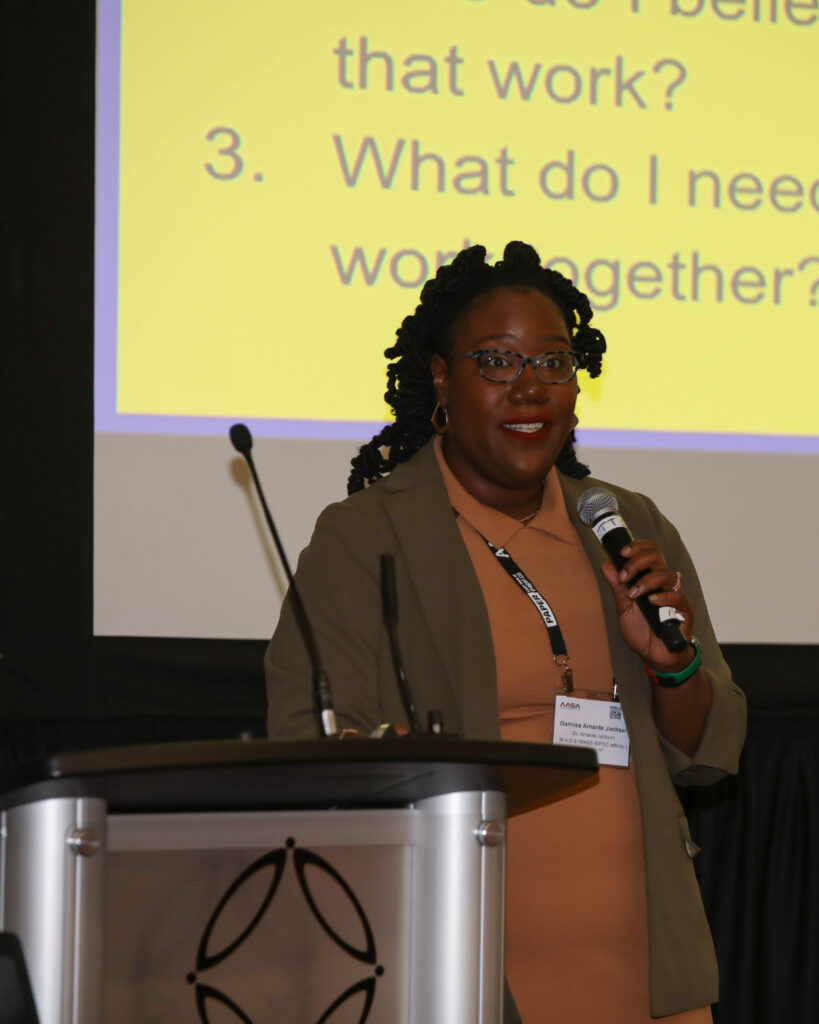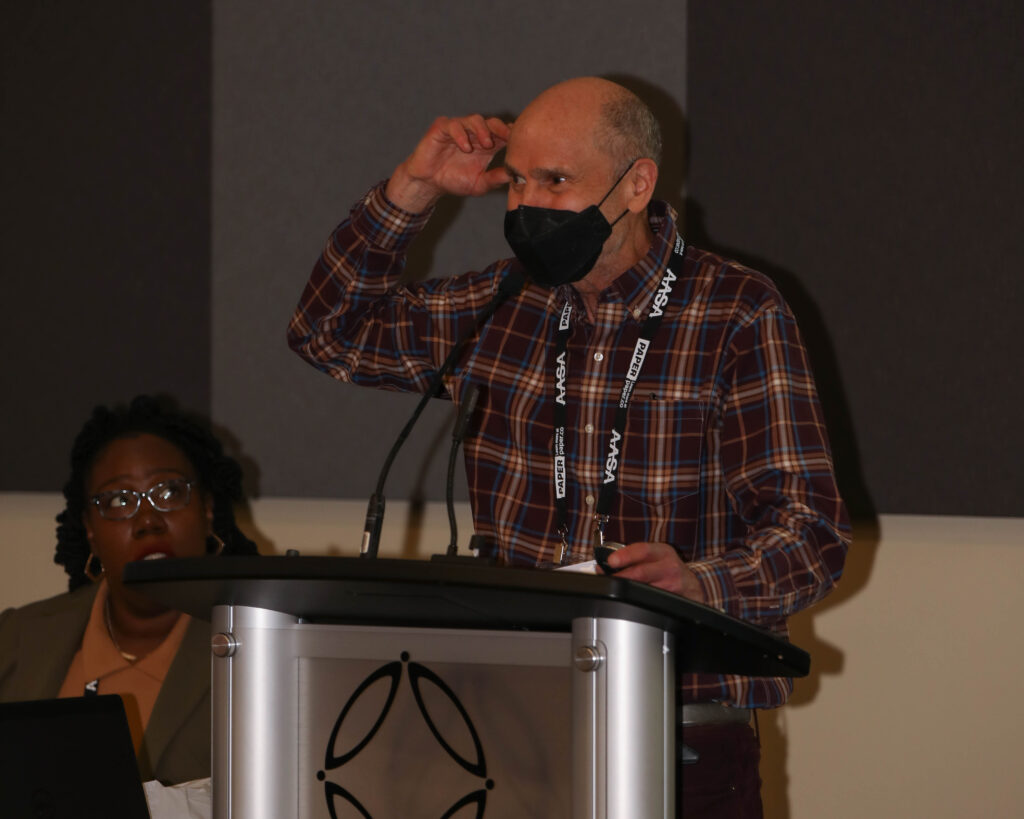The AASA conference session “BIPOC and White District Leaders Work on Race and Equity Together” addressed diversity, belonging, inclusion and equity as steps to creating an equitable culture in the workplace and schools.
The Thursday morning panel was facilitated by Lee Teitel, founding director at the Harvard Graduate School of Education, and Darnisa Amante-Jackson, founder/president of the DLAJ Consultant LLC Disruptive Equity Education Project. Both have worked with fellow panelists Aaron Polansky, superintendent-director at Old Colony Regional Vocational Technical High School in Rochester, Mass., and Almi Abeyta, superintendent of Chelsea Public Schools in Chelsea, Mass.
The session opened with an interactive Q&A, in which attendees discussed and shared the reasons they chose this particular session. Teitel then turned to the presentation, where he explained some of the background and context to the work that he and Amante-Jackson have been doing. He explained that the project began as a way of helping white superintendents to grow and learn more about the topic of race and equity, and he expanded to include BIPOC in the discussion. He emphasized the importance of creating a safe, trusting environment for all, where colleagues are not afraid or ashamed to talk about race, analyze their personal biases and work to improve together.
“We have to look at our own biases and triggers, Teitel said. “We have to have enough relational trust on the team to be able to move forward — to be able … for a white person who's involved in a team to be able to move forward and say, ‘I don't have to worry in this group that I'm going to be considered a racist because I say the wrong word, we have enough trust.’ Or, for a person of color, to say, if I speak up for this, am I going to be that angry black woman, again?”
This, he added, is the first step in the Equity Improvement Cycle, a six-step method to improve Personal and Team Equity Culture. Teitel emphasized the importance of following each step, not skipping ahead, to truly succeed in improving that culture.
Amante-Jackson then took over to discuss the role of racism and privilege in this method.

“Racism is privilege plus power,” Amante-Jackson said. “Racism and oppression are invisible, but they are felt by people of color daily. And in this, we wanted to create an experience that would allow white leaders in a place that felt safe enough.”
Abeyta offered the superintendent perspective, explaining the important role of administrators because professional educators who don’t feel like they belong can have a harder time making students feel a sense of belonging.
“We had a student panel at the beginning of this year, at our leadership summit, and one of the students, what she said, was so powerful, I'll never forget it. She said, ‘I just want my teachers to show us who they are. And the teachers that show us who they are, are the teachers that I do well in [their] classes. Show me that you're human,’” Abeyta said.
Finally, before the session ended with one more interactive discussion, Polansky, who is white, addressed the fear and opposition that some might face in trying to carry out this work.
“There are also people waiting to challenge our efforts. And that's real,” he said. “And so, I think we have to find courage through love. And when we can, dig deep and combat those people that are trying to challenge our efforts through work to educate them. Not in an angry way, but in a loving way. [And] sometimes we can really see them turn a corner. … If you misspell a word during a conversation, it does not make you illiterate. If you make a mistake during conversations around race, it does not make you racist. And that’s something that we have to pay close attention to.”
(Angelina D’Elia is a reporting intern with AASA’s Conference Daily Online and a sophomore at Trinity University in San Antonio, Texas.)


